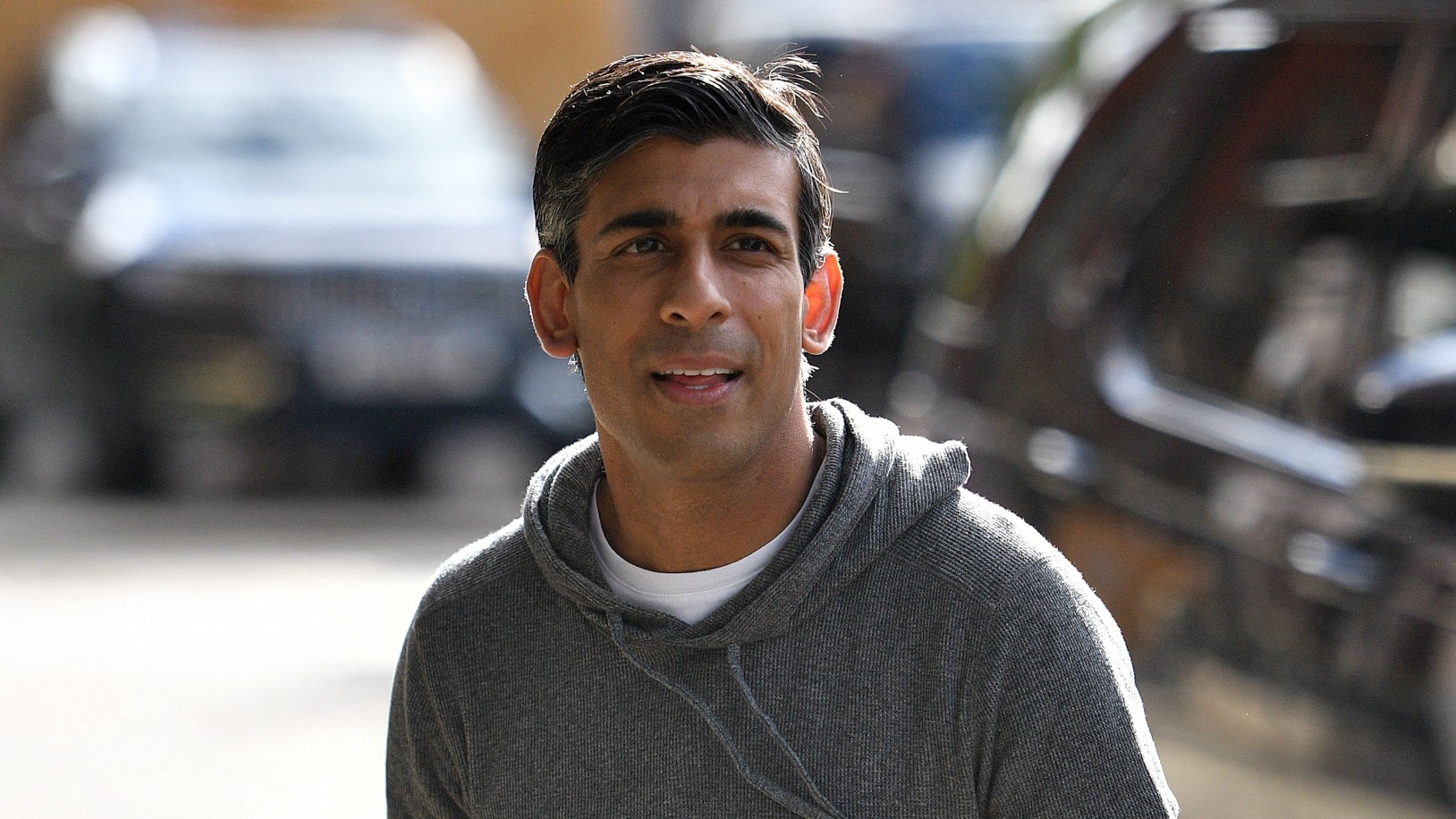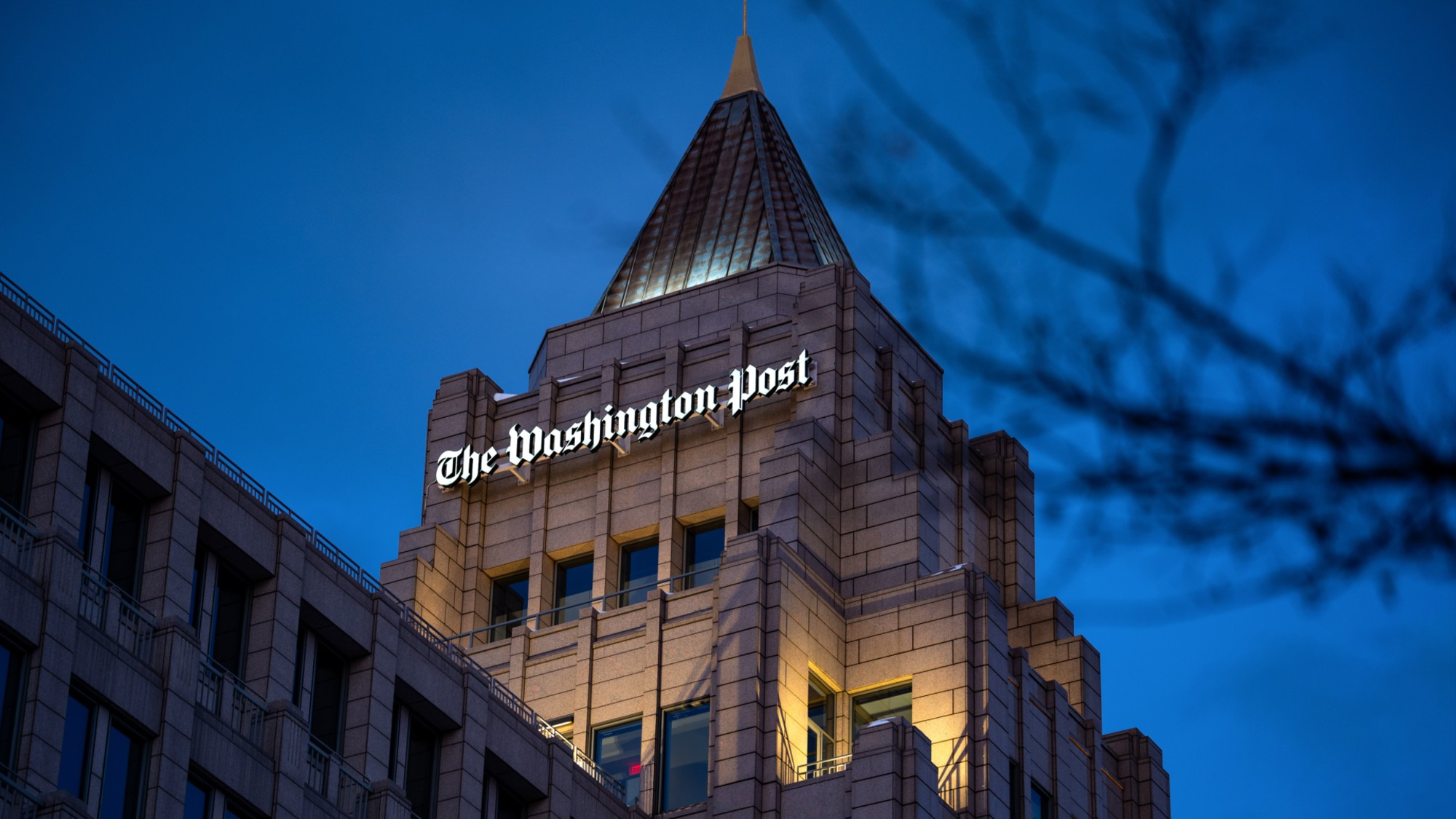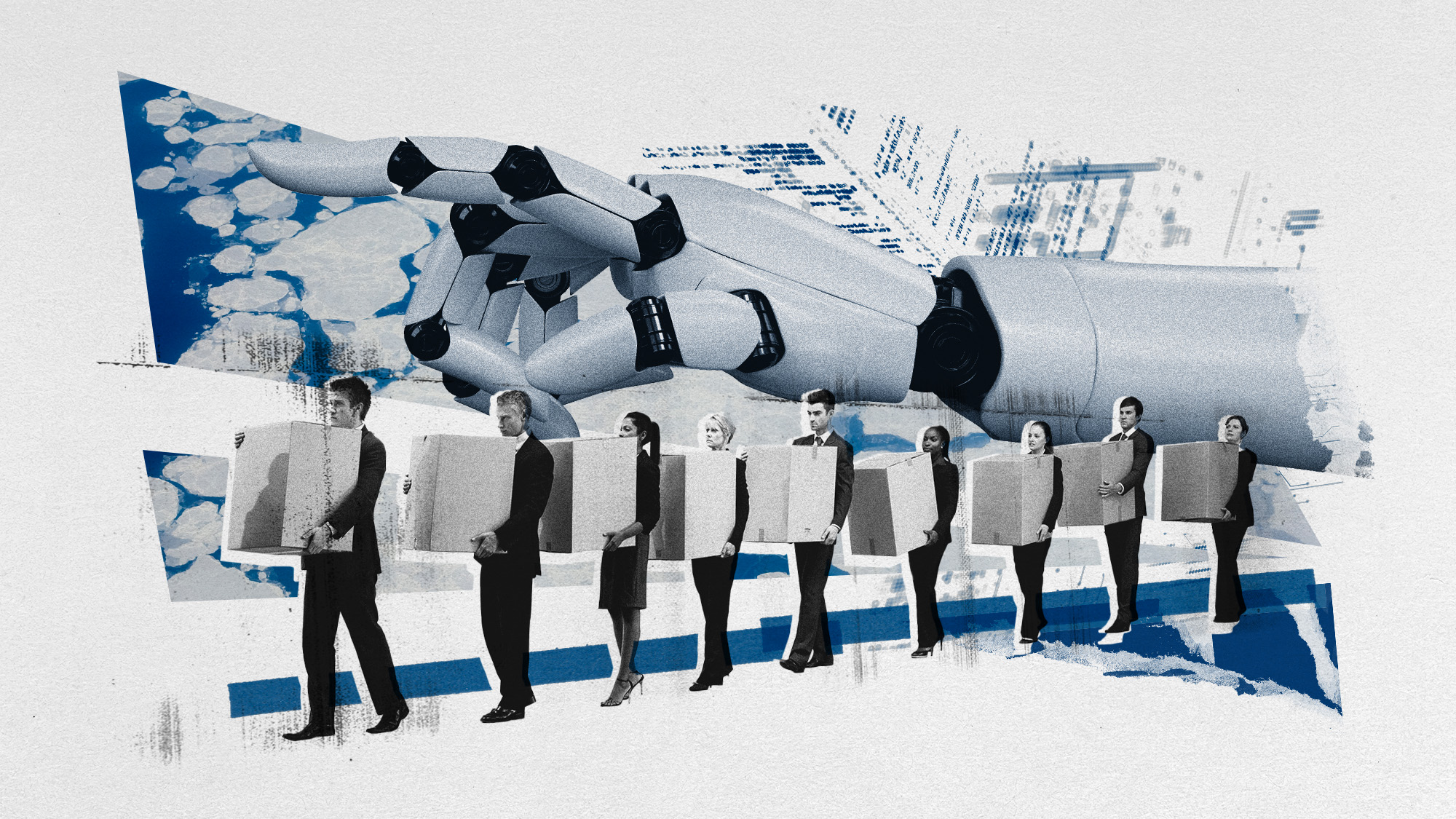Are taxes set to go up or down?
PM and chancellor refuse to rule out further hikes - but insiders say they have struck a secret deal

A free daily email with the biggest news stories of the day – and the best features from TheWeek.com
You are now subscribed
Your newsletter sign-up was successful
Rishi Sunak has left the door open to further tax rises - but also tax cuts - as he vowed to put the country back on a “sustainable footing” in a speech at the Conservative Party Conference today.
The chancellor defended the government’s plans to hike National Insurance by 1.25% to pay for social care in England and to cut Universal Credit, saying it would be “immoral” to pile up debt for future generations.
“Whilst I know tax rises are unpopular - some will even say un-Conservative... anyone who tells you that you can borrow more today, and tomorrow will simply sort itself out, just doesn’t care about the future,” he told delegates in Manchester.
The Week
Escape your echo chamber. Get the facts behind the news, plus analysis from multiple perspectives.

Sign up for The Week's Free Newsletters
From our morning news briefing to a weekly Good News Newsletter, get the best of The Week delivered directly to your inbox.
From our morning news briefing to a weekly Good News Newsletter, get the best of The Week delivered directly to your inbox.
“Yes, I want tax cuts. But in order to do that our public finances must be put back on a sustainable footing.”
His speech came a day after Boris Johnson refused to rule out further tax rises during an interview with the BBC’s Andrew Marr. The prime minister said that while he was a “zealous opponent of unnecessary tax rises”, the Covid-19 pandemic had hit the UK’s economy like a “fiscal meteorite”.
Sunak is under “mounting pressure” from Labour and some of his own MPs to offer more support for families facing a cost of living crisis. But the chancellor is said to have warned fellow Tories that such support would necessitate higher taxes, according to the Financial Times.
He is expected to use his Budget later this month to set out new rules to constrain government spending and has reportedly said that the party must “hold our nerve”.
A free daily email with the biggest news stories of the day – and the best features from TheWeek.com
Under Sunak, the overall tax burden is heading for 35.5% of gross domestic product, the highest level since 1950, said the FT.
At a fringe event in Manchester last night, Commons leader Jacob Rees-Mogg “fumed” that the UK was “at the reaches of the reasonableness of the tax burden”, reported the Daily Mirror.
And in a speech just down the road at the party conference of Reform UK - formerly known as the Brexit Party - leader Richard Tice claimed that the Conservatives and Labour were “outbidding each other” on taxation. The Tory party was forgetting its “basic economic model”, he added.
Despite ongoing anger over the increase in National Insurance contributions (NICs) from 12% to 13.25%, which broke the Conservatives’ 2019 manifesto promise, Sunak joined the PM in refusing to rule out further tax rises in the short term in a series of broadcast interviews this morning. “That includes widespread hikes to council tax, which has risen by above inflation for years, to pay for social care after just £5.4bn of a £36bn NICs hike was earmarked to fund it,” wrote the Mirror’s online political editor Dan Bloom.
But in the longer term, rumours of a quiet agreement between the Treasury and Downing Street offer more hope for taxpayers and disgruntled politicians.
Yesterday, The Sunday Times claimed that Johnson and Sunak had “struck a secret deal to cut taxes before the next general election in exchange for spending restraint now”.
Treasury officials reportedly said that there would be “little in the way of meaningful tax changes”, apart from the NI increase, in the Budget, due to be announced on 27 October. But the PM, “who has previously advocated higher borrowing, has been convinced it is in his electoral self-interest to rein in spending so he can cut taxes before polling day, due in May 2024”.
Tensions over spending had “threatened to derail the relationship between Johnson and Sunak over the summer”, added the paper, with Sunak threatened with demotion and Treasury officials “furious that No. 10 kept trying to bounce them into further spending by announcing projects - such as the £200m replacement for the royal yacht Britannia - without agreeing funding first”.
-
 Nepal’s fake mountain rescue fraud
Nepal’s fake mountain rescue fraudUnder The Radar Arrests made in alleged $20 million insurance racket
-
 History-making moments of Super Bowl halftime shows past
History-making moments of Super Bowl halftime shows pastin depth From Prince to Gloria Estefan, the shows have been filled with memorable events
-
 The Washington Post is reshaping its newsroom by laying off hundreds
The Washington Post is reshaping its newsroom by laying off hundredsIn the Spotlight More than 300 journalists were reportedly let go
-
 Will Trump’s 10% credit card rate limit actually help consumers?
Will Trump’s 10% credit card rate limit actually help consumers?Today's Big Question Banks say they would pull back on credit
-
 What will the US economy look like in 2026?
What will the US economy look like in 2026?Today’s Big Question Wall Street is bullish, but uncertain
-
 How will China’s $1 trillion trade surplus change the world economy?
How will China’s $1 trillion trade surplus change the world economy?Today’s Big Question Europe may impose its own tariffs
-
 Who will be the next Fed chair?
Who will be the next Fed chair?Today's Big Question Kevin Hassett appears to be Trump’s pick
-
 Would a 50-year mortgage make home ownership attainable?
Would a 50-year mortgage make home ownership attainable?Today's Big Question Trump critics say the proposal is bad policy
-
 How could worsening consumer sentiment affect the economy?
How could worsening consumer sentiment affect the economy?Today’s Big Question Sentiment dropped this month to a near-record low
-
 Why has America’s economy gone K-shaped?
Why has America’s economy gone K-shaped?Today's Big Question The rich are doing well. Everybody else is scrimping.
-
 Is the job market frozen or faltering?
Is the job market frozen or faltering?Today's Big Question Layoffs raise alarms while young workers eye law school